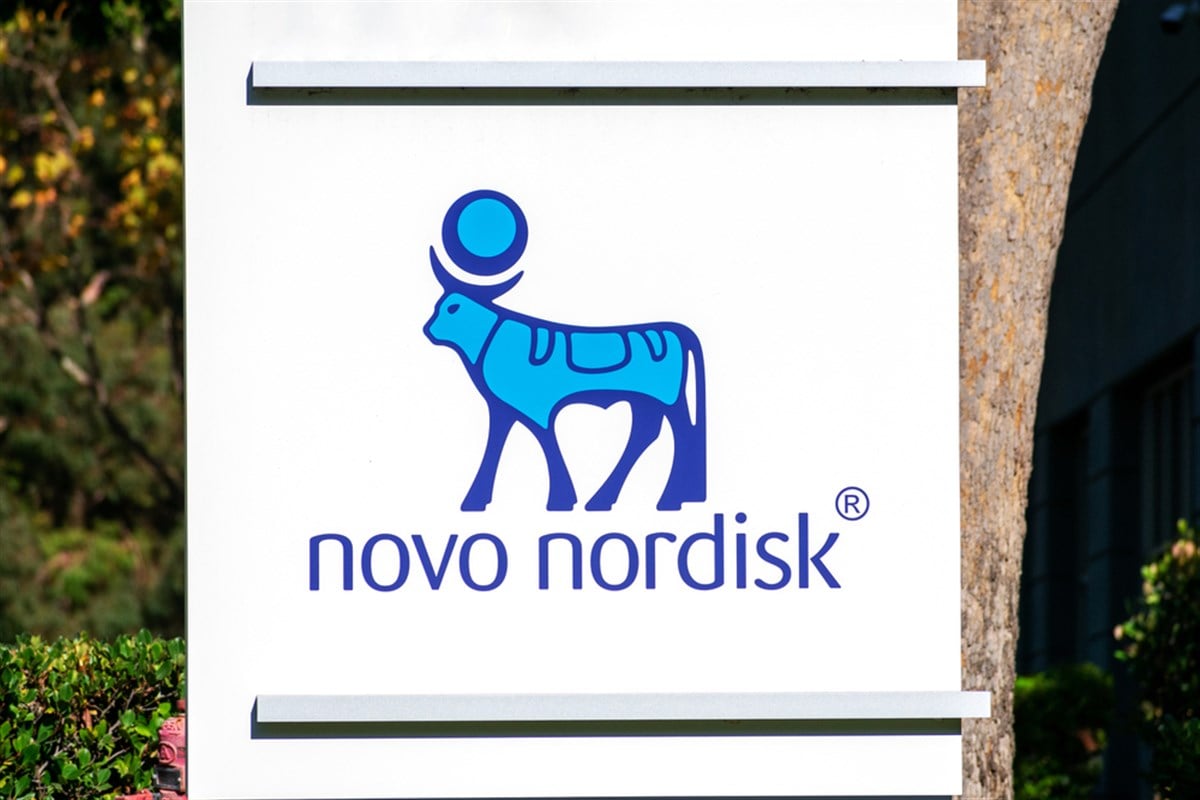
Novo Nordisk (NYSE: NVO) took a hit on its stock price last week after it received bad news on one of its in-development treatments. At the same time, shares of big and small competitors rallied as a result. This included firms like Eli Lilly (NYSE: LLY) and Structure Therapeutics (NASDAQ: GPCR).
The drug in question was monlunabant. Although not a GLP-1 treatment that has brought stellar sales and returns to some pharmaceutical companies in the recent past, it is a weight loss and diabetes drug. I’ll discuss the news around monlunabant and why it is important. I’ll also detail where Novo Nordisk stands overall when it comes to the intense race for weight loss drug supremacy.
Novo Shares Drop on Monlunabant Trial Results
Novo shares fell 5% last Friday due to underwhelming results for monlunabant in its Phase 2a Food and Drug Administration (FDA) trial. It was found that when patients took the drug for 16 weeks, they lost 6.4% of their body weight, on average.
In comparison to other drugs, this percentage of weight loss doesn’t stand out. In its trials, semaglutide, also known as Novo’s Wevogy, resulted in 5.9% weight loss in 12 weeks. Trizepatide, also known as Eli Lilly’s Zepbound, resulted in around 8% weight loss in 12 weeks. However, caution should still be used when comparing these results.
One key difference between monlunabant versus Wegovy and Zepbound is that it is in pill form rather than an injection. Companies seek to develop a weight-loss pill as it would be more convenient for many users. However, it is often more difficult to achieve the same level of weight-loss results using pills.
Fierce Biotech also points out that another potentially big problem with the drug is that it is linked to neuropsychiatric side effects. In the past, this derailed the development of a similar drug for Sanofi (NASDAQ: SNY).
Medicare Negotiations Could Limit Novo’s Weight Loss Drug Profits
Another piece of unfortunate news for Novo is the belief that its drugs are next on the list for price negotiations with Medicare. This is a big deal, considering the massive price reductions resulting in the first round of Medicare negotiations. Those drugs saw price reductions of between 79% and 38%, set to begin in 2026, compared to their 2023 prices.
In a recent research brief, Wegovy, Ozempic, and Rybelsus were ranked number one in a list of “drugs anticipated to be selected for Medicare price negotiation in 2025." In the first half of 2024, the combined revenue of these drugs made up over 66% of Novo Nordisk’s total sales.
Needless to say, the company is very dependent on these drugs. A significant reduction in their prices due to the Medicare negotiations would substantially negatively impact Novo’s future profitability. The operating margin for Novo’s “Diabetes and Obesity care" segment was 42% last quarter. A decrease in price for these drugs on levels similar to the last reductions could wipe out most of the margin for that segment.
However, it is important to mention that the segment contains drugs other than those potentially up for price negotiation. Third parties are not the only ones claiming this will happen. An executive for the firm said Ozempic is “very likely” to be subject to these negotiations.
In contrast, Eli Lilly’s drugs, Zepbound and Mounjaro, were not on the list. If Novo's drugs face price limitations while Lilly's do not, it would significantly disadvantage Novo in terms of profitability. However, it would also negatively affect Lilly as customers flock to Novo’s treatment due to the lowered price.
Another Oral Treatment Shows Encouraging Results
Despite these two pieces of negative news, Novo did receive some good news for another developmental weight loss drug. The company reported that in its Phase 1 trials for oral amycretin, patients saw an average weight loss of 13.1% over 12 weeks. Compared to Wegovy, Zepbound, and monlunabant, that is a big number based on this metric.
This is also an oral drug, which helps balance out the results seen for monlunabant. However, it has still only completed Phase 1 trials and is considerably far away from any potential approval.
Overall, Novo Nordisk is still one of the top players in the weight loss drug space. However, it must continue innovating to stay there, especially amidst fears of Medicare negotiation for its biggest drugs. The results for oral amycretin are good to see. However, the poor results for monlunabant, which was further developed, somewhat overshadowed them.














